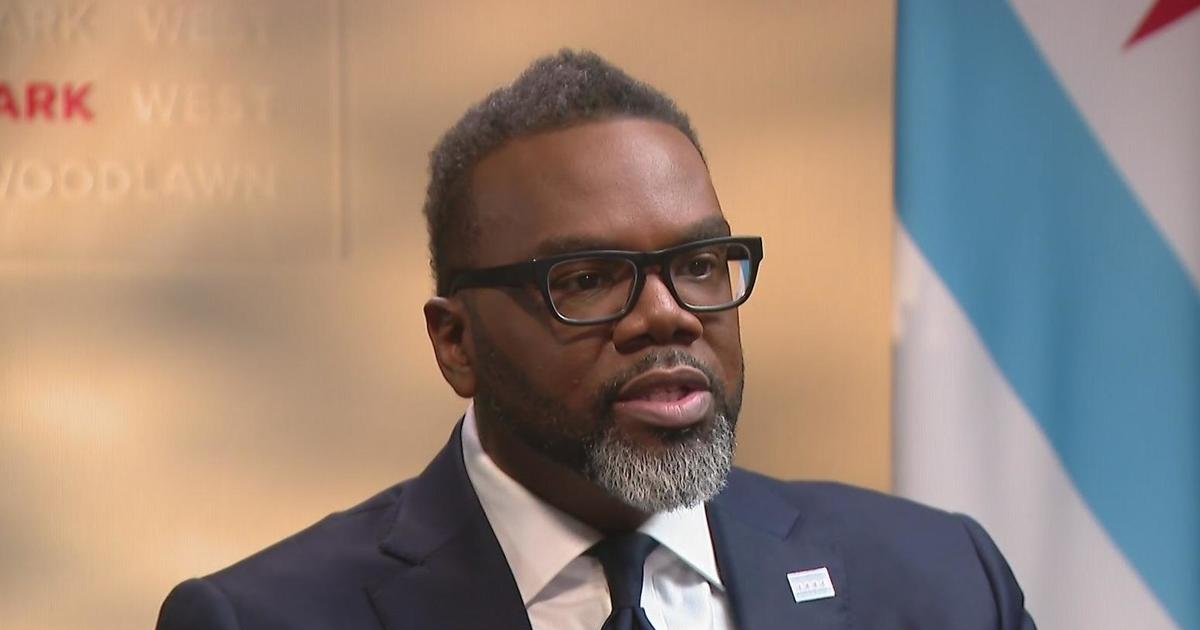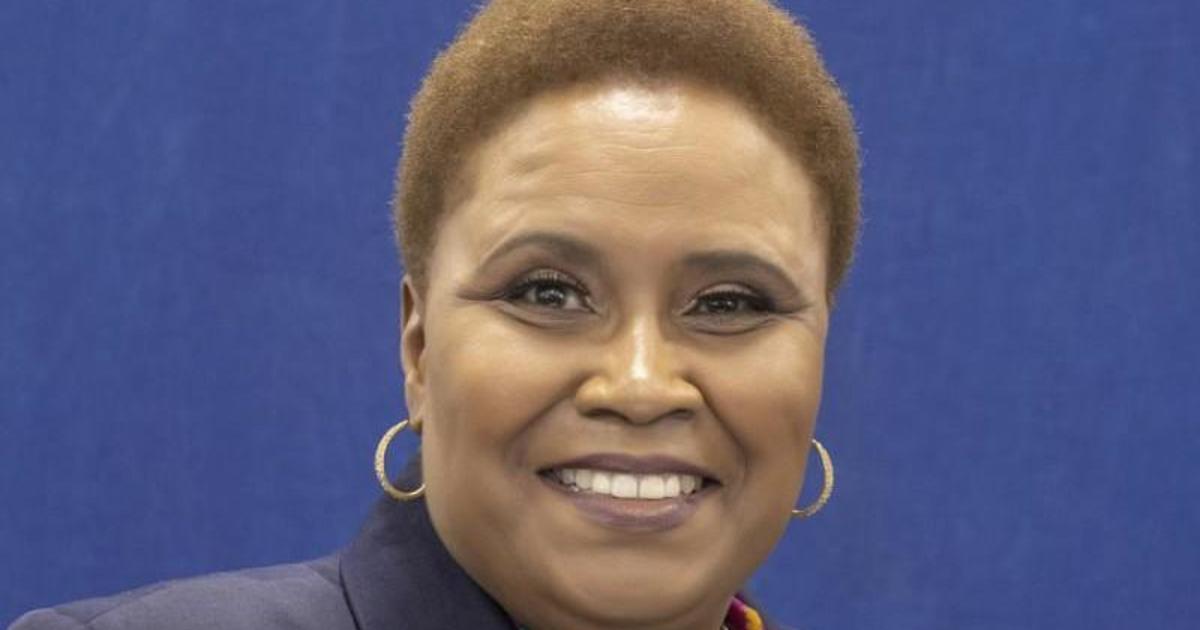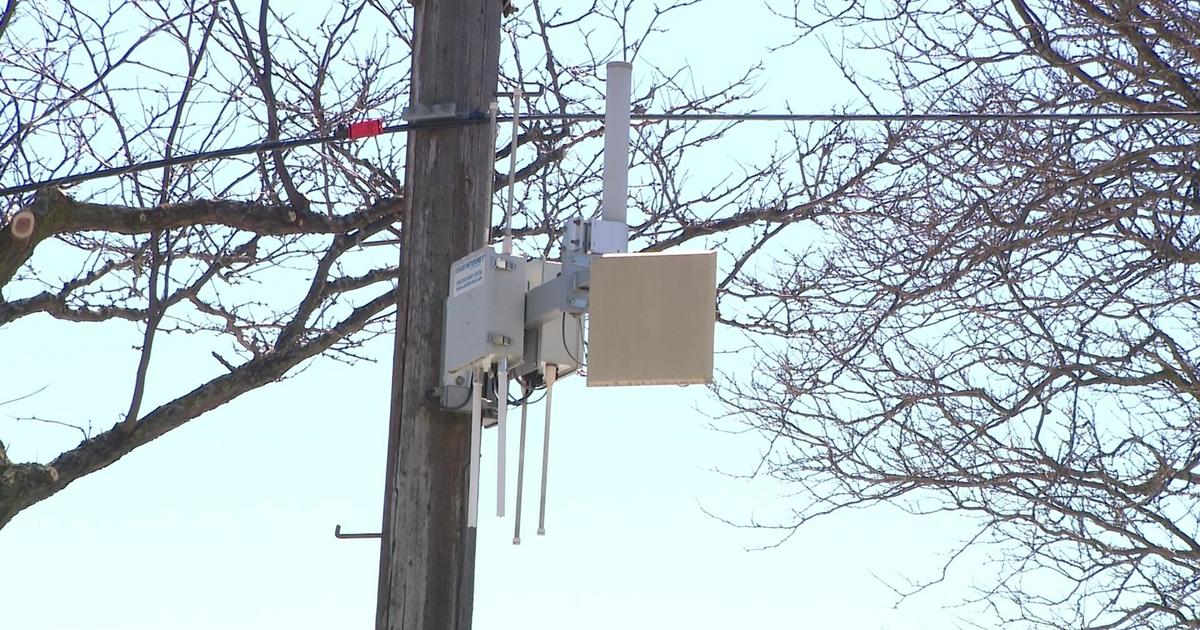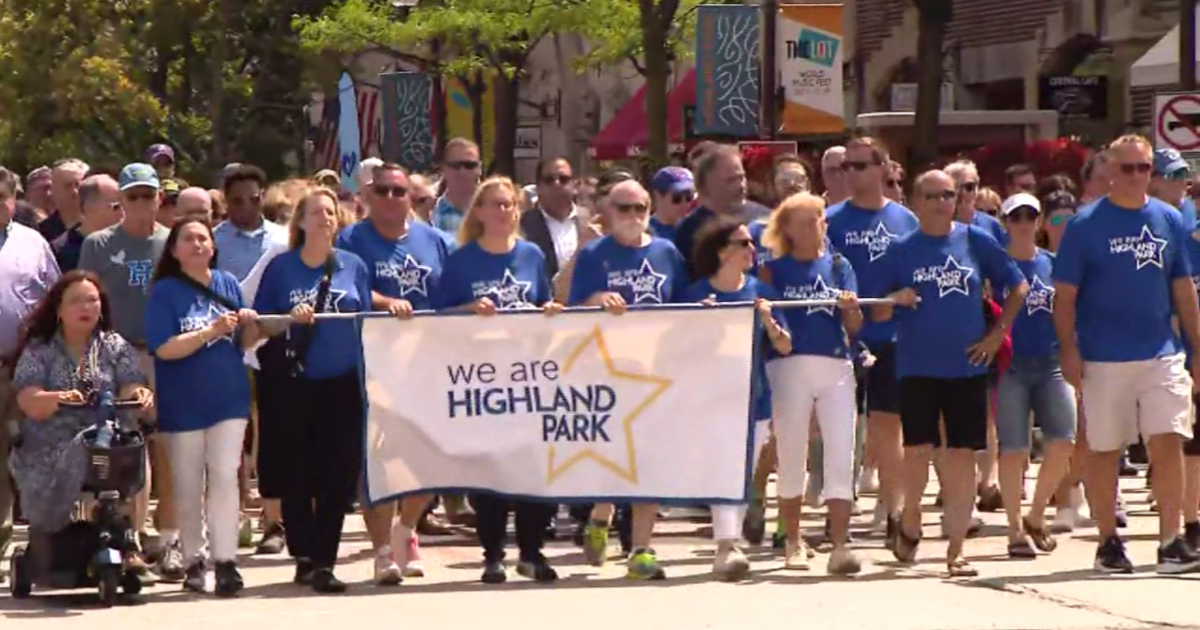Mayoral candidates trade heated remarks on crime, education, economy at forum
CHICAGO (CBS) -- At a primetime mayoral forum Tuesday night, Mayor Lori Lightfoot again touted her record on economic development, crime, and other issues – while the other candidates again took issue with her claims and took jabs at each other on various subjects.
Mayor Lightfoot took part in the forum along with her eight opponents – community activist Ja'Mal Green, Ald. Sophia King (4th), state Rep. Kam Buckner (D-Chicago), businessman Willie Wilson, former Chicago Public Schools Chief Executive Officer Paul Vallas, U.S. Rep. Jesus "Chuy" Garcia (D-Illinois), Ald. Roderick Sawyer (6th), and Cook County Commissioner Brandon Johnson (1st)
The forum was hosted by WGN-TV Channel 9 and was moderated by WGN political reporter Tahman Bradley and anchor Lourdes Duarte. It was held at Steinmetz College Prep, at 3030 N. Mobile Ave. in the Belmont Cragin community.
As CBS 2's Marissa Perlman reported, the candidates are feeling the pressure. Polls over the past few weeks show various candidates leading the race, and different candidates surging.
Early voting is also under way – and that is why the debates are becoming more critical.
The event Tuesday night was a forum rather than a debate – which meant the candidates were not allowed to offer rebuttals. But they still found a way to attack each other in multiple heated moments.
The moderators began by asking the candidates what steps they would take to protect Chicagoans in case of a recession – noting that economists are forecasting a recession or downturn in 2023, but Mayor Lightfoot says the Chicago economy is a "great American success story."
Most of the candidates emphasized a need to grow the economy. Buckner called for a plan to grow the city's population by $3 million people by 2030 – and said City Hall cannot be fighting with companies to the point where they are pushed out. King called for a plan to make Chicago into the "Silicon Valley of the Midwest," touting the tech industry as the employer of the future.
Lightfoot said her administration has created the most diverse economy of any big city in the country – with manufacturing, transportation and logistics, life sciences, food and agriculture, and tech.
"Our businesses are doing very well, and survived the COVID-induced recession," the mayor said.
She also emphasized that tax revenues vastly exceeded projections in 2021 and 2022, and she also talked about the efforts her administration has made to protect small businesses.
The candidates were also asked whether they would commit to refrain from raising taxes. Buckner, Garcia, and Green said they would not raise taxes if they were elected – but some of the other candidates said being realistic and pragmatic was the way to go.
Sawyer called for a plan with "tax and planning strategies," and said some tax "adjustments" may be required if the financial situation is going in the wrong direction.
"No smoke, no mirrors, just smart decisions made by smart people that advise me as mayor," Sawyer said.
Johnson was asked about his endorsement of a head tax and a Metra city surcharge, among other new taxes and fees. He said the other candidates on the stage were naïve when it came to the idea that they could run the city without raising taxes.
"You cannot run a city government off of bake sales," Johnson said. "The people on this stage here who do not believe that we can have a better, stronger, safer Chicago." Do what safe cities do – invest in people."
Green accused Johnson of advancing a plan to "tax everything."
As has happened on other occasions when the candidates have met, the barbs really got flying when the issue of crime came up. The moderators began by asking Mayor Lightfoot about plans to combat crime – noting that while she says correctly that murders and shootings are down over the past year, they are also up since she took office in 2019.
"It's not what we will do in the future," Mayor Lightfoot said. "It's what we are doing now."
She said she is always working to make Chicago the safest big city in the country, in part by listening to community leaders – particularly those living in areas plagued by violence. She also emphasized her administration's work with federal partners to get illegal guns of the streets, and called on the courts to do their part to keep violent habitual offenders off the streets.
The mayor was reminded that she was asked about three new things she would to do combat crime if elected, but she focused on her record.
Meanwhile, Vallas called for the replacement of police Supt. David Brown, a return to community-based policing, and an invitation to retired officers – or officers who have left for other jobs – to return under new leadership without losing any seniority. Garcia also deemed Brown "a failure, and everyone knows it."
Some of the other candidates were not on board with the idea of focusing on spending more on police, and many criticized the mayor.
Buckner accused Mayor Lightfoot of doubling down on "failed policies," and for his own part called for a gun violence prevention program, and bringing on more detectives so the city can achieve a better case clearance rate.
Green said, "I really with the mayor would stop lying to the people." He called for devoting funds toward social workers and youth intervention programs, and reopening mental health facilities.
"When you invest in people, they can police themselves on their blocks," Green said.
As a Cook County commissioner, Johnson sponsored a measure that would redirect funds from police after the murder of George Floyd at the hands of Minneapolis police in 2020. The moderators asked him what cuts he would make to Chicago Police.
Johnson did not directly answer the question, but instead emphasized what he called a need to "invest in people."
"There's a direct correlation between youth employment and violence reduction," he said for one example of investing in people.
Lightfoot accused Johnson of being a "defunder" of the police, and – in line with remarks at an earlier debate – accused Garcia of also supporting defunding law enforcement and said he had slashed the Cook County Sheriff's budget as a Cook County commissioner in 2011, and also slashing adult probation.
"That's totally false, among many other things she says," Garcia fired back, adding: "She's always creating smokescreens. She is trying to cover up her own failures."
The candidates were also asked how they would attract officers. Buckner called for getting rid of what he said were racially-insensitive barriers to applying to the force such as questions about applicants' FICO credit scores. Mayor Lightfoot noted that her administration has already set up a full-time recruiting team that has visited HBCUs, military branches, and other sources of possible new officers.
Meanwhile, Wilson was taken to task for recent remarks in which he said police should be able to chase down criminals "like rabbits."
"It is disgusting that we have a 70-plus-year-old man on the stage who was a sharecropper from down South who would get on TV and constantly double down on hunting people down like rabbits," Green said. "He should know what that means and how it feels, and when you have that mentality that Willie Wilson has, you have Tyre Nichols. You have George Floyds. You have Anjanette Youngs."
In the same remarks, Green said the focus needs to be on root causes of crime and not on expanding police budgets, and said Mayor Lightfoot is so pro-police that "when I'm mayor, I'll hire her as one."
When Wilson was asked to respond to Green's remarks, he said. "I don't respond to kids."
Green is 27, while Wilson is 74.
Mayor Lightfoot also took Wilson to task for the remark about enabling police officers to hunt people down "like rabbits."
"You're talking about Black and brown boys in our city," Mayor Lightfoot said. "You have no concern for their lives, but I do."
Education was also a major topic in the debate. The moderators noted that the Chicago Public Schools have lost 87,000 students since 2009, but taxpayer spending on the system is up significantly from a decade ago. Most of the candidates called for some combination of investing more funds in public education and making efforts to improve Chicago students' educational experience.
Vallas fell back on his own run as CPS chief executive officer from 1995 until 2001 – touting his record of getting magnet programs into neighborhood schools. He said more money needs to be directed toward local schools.
The candidates also addressed questions on homelessness and affordable housing in Chicago.
The election is Tuesday, Feb. 28 – four weeks away.



